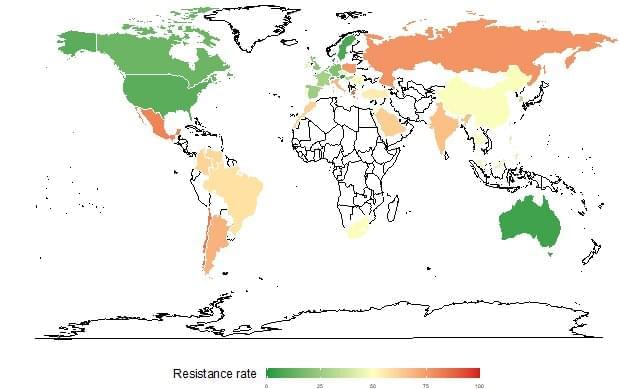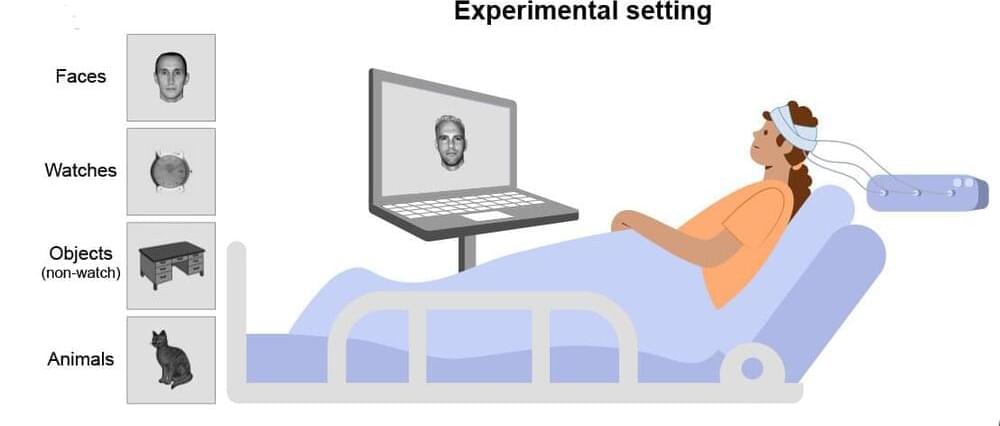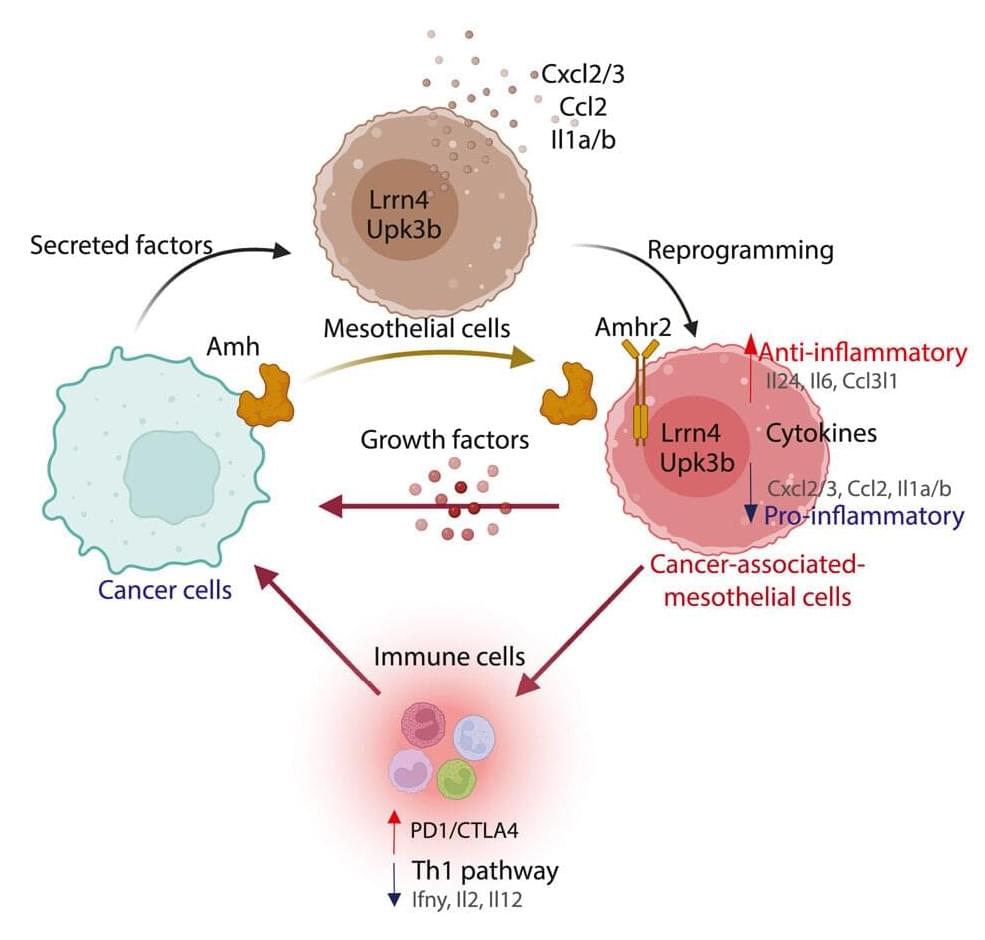In a 2022 predictions tournament, AI experts were far more concerned about AI risks than ‘superforecasters’ were.


To succeed with generative artificial intelligence and extended reality, companies should also harness human creativity, curiosity, and compassion.


T cells are immune cells that fight off disease. The most common type of T cell, known as conventional T cells, maintains different functions, including activation of other T cells and killing pathogens. However, there is a less common type of T cell known as unconventional T cells. These cells regulate conventional T cells and often suppress conventional T cell function. How these cells develop and protect the body from infection and disease is unclear. Dr. Dan Pellicci and colleagues from Murdoch Children’s Research Institute and Federation University Australia reported on unconventional T cell development and their role in the immune system in a recent Science Immunology paper.
The researchers found that these unconventional T cells elicit an immune response. The discovery of an anti-pathogen role in these T cells has been unknown previously. Scientists can target these cells to prevent cancer and highly infectious diseases by understanding their role in immunity.
Dr. Pellicci and colleagues gathered samples from the Melbourne Children’s Heart Tissue Bank, where samples from children sixteen years old or younger who had heart surgery were kept. The researchers looked at the T cells from the thymus, a gland that further develops or matures T cells. After the T cells exit the thymus, they are ready to activate and target or kill infecting pathogens. Through T cell isolation, Dr. Pellicci and colleagues were able to determine the role of Unconventional T cells.

To understand the main determinants behind worldwide antibiotic resistance dynamics, scientists from the Institut Pasteur, Inserm, Université de Versailles Saint-Quentin-en-Yvelines and Université Paris-Saclay developed a statistical model based on a large-scale spatial-temporal analysis. Using the ATLAS antimicrobial resistance surveillance database, the model revealed significant differences in trends and associated factors depending on bacterial species and resistance to certain antibiotics.
For example, countries with high quality health systems were associated with low levels of antibiotic resistance among all the gram-negative bacteria investigated, while high temperatures were associated with high levels of antibiotic resistance in Enterobacteriaceae. Surprisingly, national antibiotic consumption levels were not correlated with resistance for the majority of the bacteria tested. The results suggest that antibiotic resistance control measures need to be adapted to the local context and to targeted bacteria-antibiotic combinations.
The results of the study were published in the journal The Lancet Planetary Health.

More than a quarter of all stroke victims develop a bizarre disorder—they lose conscious awareness of half of all that their eyes perceive.
After a stroke in the brain’s right half, for example, a person might eat only what’s on the right side of the plate because they’re unaware of the other half. The person may see only the right half of a photo and ignore a person on their left side.
Surprisingly, though, such stroke victims can emotionally react to the entire photo or scene. Their brains seem to be taking it all in, but these people are consciously aware of only half the world.

Ovarian cancer is the fourth-leading cause of cancer mortality among women and is characterized by late detection, extensive metastasis and poor prognosis.
One reason that treating this disease has been so challenging is that tumors often become resistant to chemotherapies, and generally respond poorly to immunotherapies.
While much of the research on overcoming resistance and efforts to develop new therapies have focused on the cancer cells, it has often ignored the many other cell types within the tumor. Indeed, cancer cells have the ability to reprogram the cells around them to nurture the tumor and help evade the patient’s immune system.
Join us on Patreon! https://www.patreon.com/MichaelLustgartenPhD
Discount Links:
NAD+ Quantification: https://www.jinfiniti.com/intracellular-nad-test/
Use Code: ConquerAging At Checkout.
Epigenetic Testing: https://trudiagnostic.com/?irclickid=U-s3Ii2r7xyIU-LSYLyQdQ6…M0&irgwc=1
Use Code: CONQUERAGING
At-Home Metabolomics: https://www.iollo.com?ref=michael-lustgarten.
Use Code: CONQUERAGING At Checkout.
At-Home Blood Testing: https://getquantify.io/mlustgarten.
Oral Microbiome: https://www.bristlehealth.com/?ref=michaellustgarten.
Lecturer: Prof. Michael Silberstein.
Department of Philosophy.
Elizabethtown College.
Title: Neutral Monism: Reintegrating Space, Time and Conscious Experience.
Date: 22 October 2018
This is a recorded talk of the online seminar “Progress and Visions in the Scientific Study of the Mind-Matter Relation”.

The digital devices that we rely on so heavily in our day-to-day and professional lives today—smartphones, tablets, laptops, fitness trackers, etc.—use traditional computational technology. Traditional computers rely on a series of mathematical equations that use electrical impulses to encode information in a binary system of 1s and 0s. This information is transmitted through quantitative measurements called “bits.”
Unlike traditional computing, quantum computing relies on the principles of quantum theory, which address principles of matter and energy on an atomic and subatomic scale. With quantum computing, equations are no longer limited to 1s and 0s, but instead can transmit information in which particles exist in both states, the 1 and the 0, at the same time.
Quantum computing measures electrons or photons. These subatomic particles are known as quantum bits, or ” qubits.” The more qubits are used in a computational exercise, the more exponentially powerful the scope of the computation can be. Quantum computing has the potential to solve equations in a matter of minutes that would take traditional computers tens of thousands of years to work out.